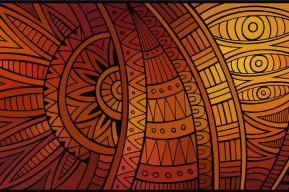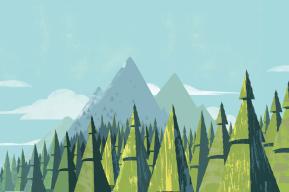Today, the lack of ocean literacy led us to the creation of a MasterClass for educators on this issue. More than 400 participants from 152 countries were brought together online for a unique discussion on the actual state of Ocean education and its future perspectives for the youth, thanks to the knowledge and ideas of experts:
- Francesca Santoro, Intergovernmental Oceanographic Commission (IOC) of UNESCO, introduced the Ocean Literacy program.
- Sophie Palmer, climate and social justice activist, writer and craftivist, working at Force of Nature, gave us knowledge on how to tackle eco-anxiety.
- Yolanda Sánchez, who is Co-Founder and Director of the Latin-American Marine Educators Network for the Ocean (RELATO) and an Edinburgh Ocean Leader 2020 cohort. She gave key elements to implement school activities about Ocean, wherever in the world.
- Michael Palmgren, Marine Expert and Founder of Marine Education Center in Malmö, Sweden. He demonstrated the necessity of outdoor activities to increase curiosity and knowledge of the Ocean.
Francesca Santoro, is in charge of the Ocean Literacy Programme, as well as on the coordination of the Ocean Literacy for All Programme, endorsed by the UN Ocean Decade. This program was created because of the lack of resources on this issue. It has 7 essential principles to help us understand how important is the ocean because “Earth has one big ocean with many features”. On the occasion of the UN decade for the ocean, the main goal is for the ocean to be part of the school curriculum by 2025, “it’s ambitious but necessary to support countries”.
What is the relationship between Oceanic Literacy and Media and Information Literacy? Does UNESCO articulate these two lines of action?
“As it's not part of school's curriculum, we developed a training class on information and fake news. Also, on our social media try to debunk some ocean myths.”
Francesca Santoro Senior Programme Officer, Ocean Literacy, UNESCO
Sophie Palmer is the Executive Assistant and Community Coordinator at Force of Nature, a youth non-profit mobilizing mindsets for climate action. She gave us her expertise on youth climate anxiety and how to deal with it. “Eco-anxiety doesn’t have a strict formula, but it’s based on a fear”, to deal with it, especially with young people, she advised on focusing on opening places to talk and share feelings, “getting that you are not alone is part of a solution”.
I found working with kids and schools very inspiring as they can probably express their emotions in a stronger way than adults. How do engage other age levels and adults throw emotions?
"We need to have an intergenerational conversation, not just limited to youth or young adults, it’s important to hear the voice of others and to learn from everyone’s experiences and emotions because it’s a context crisis."
Sophie Palmer, Executive Assistant and Community Coordinator, Force of Nature
Yolanda Sánchez, has been supporting marine conservation through education for the last ten years by designing, implementing, evaluating, and improving educative programs and outreach material for universities, NGOs, governments and local communities associated with Marine Protected Areas. She developed programs to introduce these topics in school programs, “we try to support teachers with activities they can implement with their classes” She also developed a network “they have to participate and show the activities they have set up”. But she underlined the fact “We shouldn’t leave the responsibility to young people just because they're the future”.
Which subject can be best suited to implement those activities?
“It’s tricky, as Ocean Literacy is connected to all, it’s not only about the subject. So every time we need to find how one piece of information can be connected to the people we want to talk to”.
Yolanda Sánchez, Co-Founder and Director, RELATO
Michael Palmgren, started in 1999 a marine education program with his wife for school classes in the south of Sweden. Today, they have 6000 students each year - from preschool to university – and they open the Naturum Öresund not only to classes but also to public visitors. According to him, outdoor education is essential because it engages the youth in another context, opens the senses and increases the curiosity, they express themselves positively “It’s a total game changer when they are outside”.
Do you follow up with schools to find out whether students become more active over time, after their apprenticeship at your center, in the Baltic Sea preservation, for example?
“We don’t want everyone to become a scientist or a biologist, but we want them to have the ocean in their heart.”
Michael Palmgren, Founder and Director, Marine Education Center.
This session ended with a global Q&A, to help educators act for the better of the Ocean; here some of the most interesting exchanges:
"How can ocean scientists engage with educators and help them to promote Ocean Literacy?", Gennadi Lessin, UK
Michael Palmgren: “Join a local group, make it easy at first, and start somewhere we all started somewhere small”
Sophie Palmer: “Leverage perspectives! Just reach and be direct with your intention, speak your truth! Educators and scientists always want to share and need to learn from others”
"I work in Switzerland, and the students then always ask me, what they can do to save the oceans and marine animals. What are the most important actions an individual can do to make positive change for our oceans from your point of view?", Larissa B., Switzerland:
Michael Palmgren: “For young in non-coastal countries, we need to explain how everything is linked: a Swiss mountain is the beginning of the ocean for instance. In our consumption, we need to avoid overfishing. The most important is we must live with the ocean and not from the ocean.”
These are just some of the hundreds of questions asked during the event.
If you want more information about UNESCO's work on Ocean Education:
This event has been possible thank to the support of the Engie Foundation.










